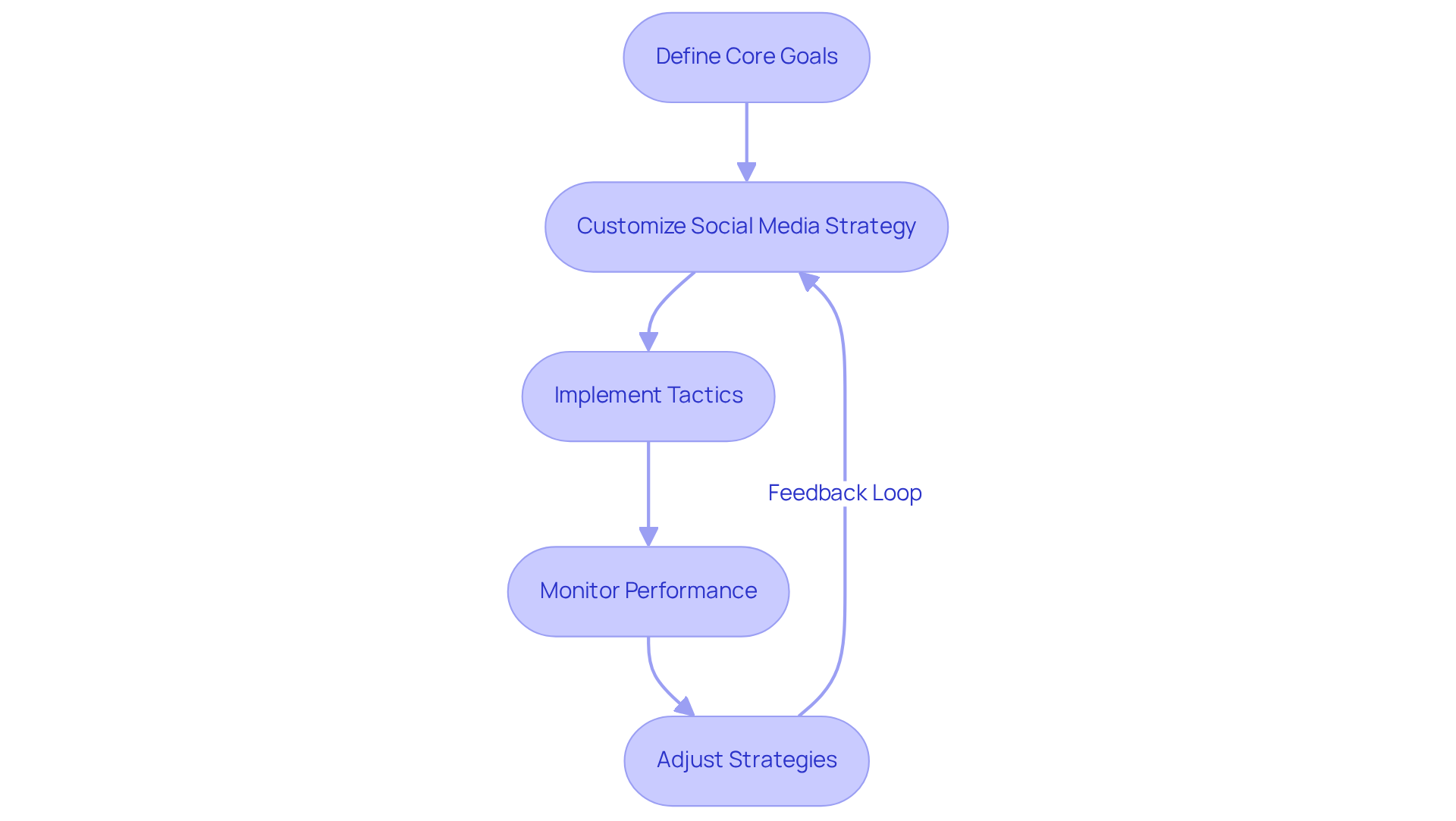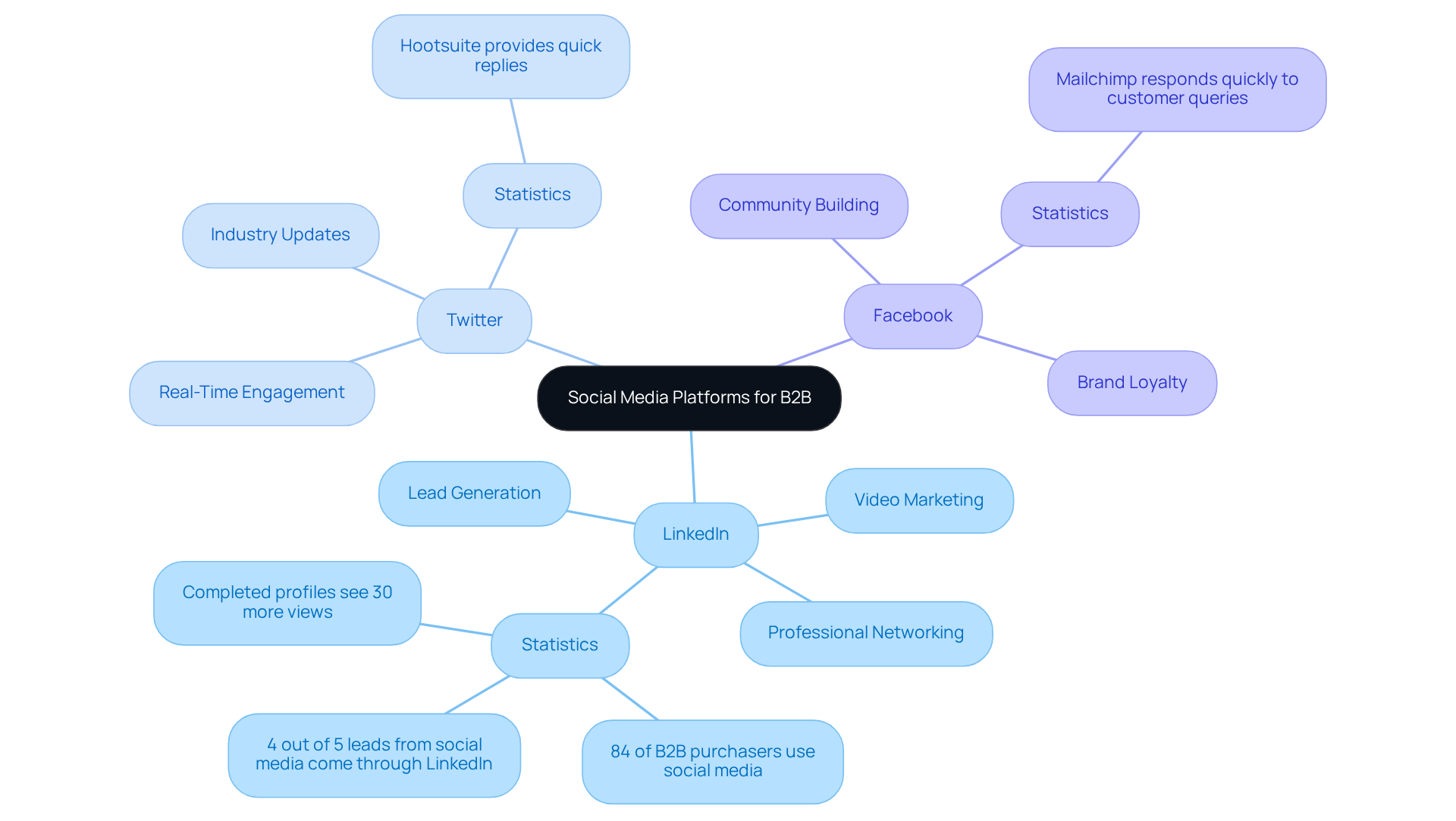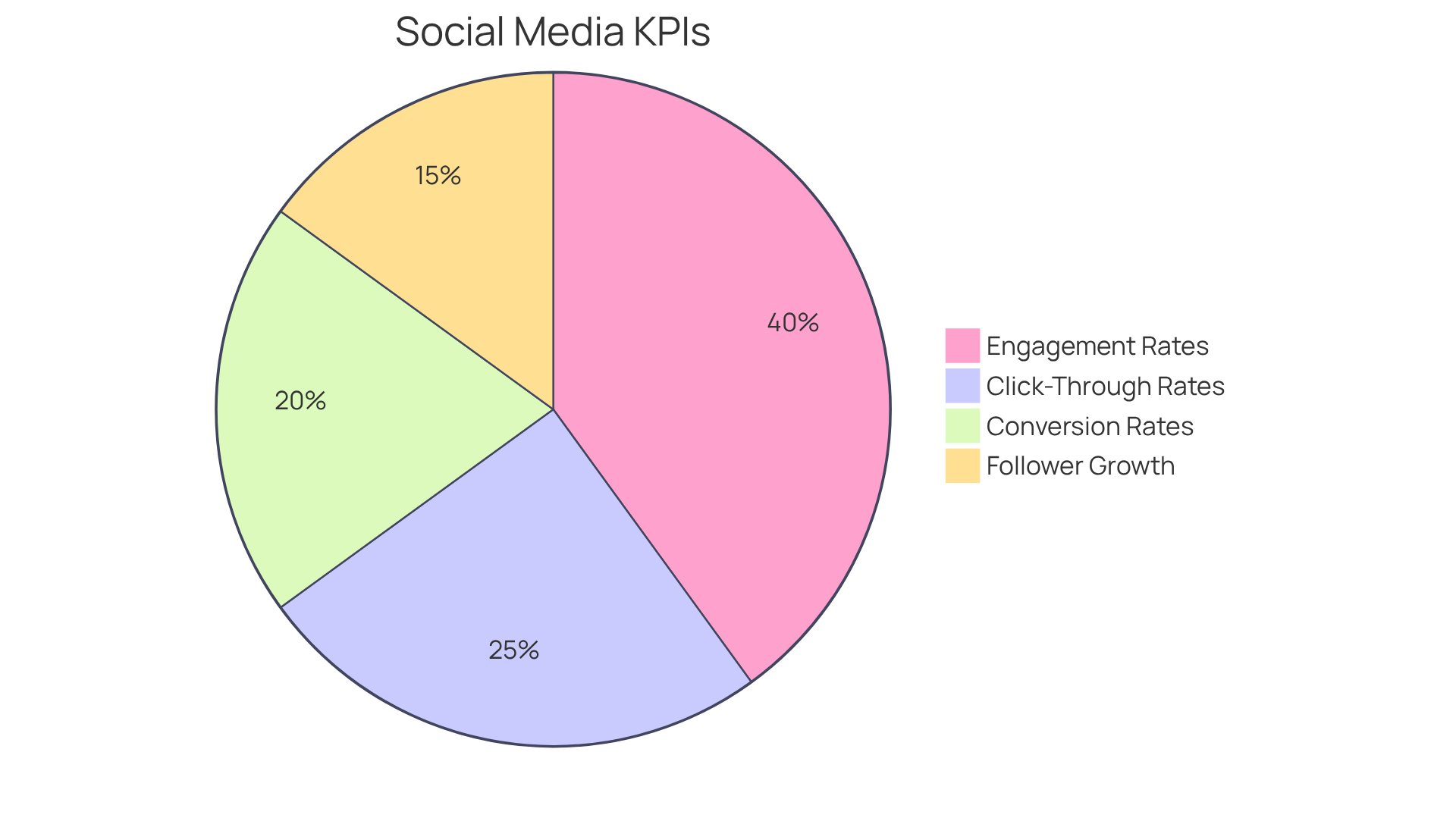Overview
Startups often find themselves navigating the complex world of social media and B2B marketing, which can feel overwhelming. Many founders struggle to effectively align their marketing strategies with their business objectives, leading to frustration and uncertainty. This challenge can hinder their visibility and growth in a competitive landscape, leaving them questioning their approach.
However, there is hope. By setting clear goals using the SMART criteria, startups can create a roadmap that guides their efforts. It's essential to leverage data to measure performance and make informed decisions. Choosing the right platforms, such as LinkedIn, can significantly enhance B2B engagement and lead generation. This structured approach not only fosters clarity but also empowers startups to thrive.
Remember, you are not alone in this journey. Many founders have faced similar hurdles and emerged stronger by embracing these strategies. By aligning your marketing efforts with your business goals and focusing on the right platforms, you can enhance your visibility and drive meaningful connections. Together, we can navigate this landscape and achieve the success you envision.
Introduction
In today's competitive landscape, crafting a successful startup is no small feat. Many founders find themselves overwhelmed, realizing that innovative ideas alone are not enough; they need a strategic approach to social media and B2B marketing. This can feel daunting as you align your online strategies with clear business objectives, all while aiming to unlock opportunities for growth, engagement, and brand awareness.
But let’s pause for a moment. The challenge of navigating the myriad of platforms and metrics can be frustrating. You might be asking yourself: how can I effectively measure and optimize my social media efforts? It’s not just about reaching your target audience; it’s about truly resonating with them. This is where many founders feel the weight of uncertainty.
However, there is hope. By embracing a supportive approach and leveraging the right strategies, you can transform these challenges into opportunities. At RNO1, we understand the emotional and professional journey you’re on. We’re here to guide you through the complexities of social media, helping you connect authentically with your audience and achieve your business goals. Together, we can navigate this landscape, ensuring your startup not only survives but thrives.
Align Social Media Strategies with Business Objectives
To effectively align online communication approaches with business objectives, startups often face the challenge of defining their core goals. Whether it's increasing brand awareness, generating leads, or driving sales, this foundational step is crucial. A recent survey highlights that 70% of marketers trust LinkedIn to deliver a positive ROI, showcasing the platform's potential for achieving these objectives. Once these goals are established, it becomes essential to customize social media and B2B marketing plans to support them. For instance, if generating leads is the focus, the strategy might center on creating engaging content that encourages sign-ups or inquiries.
Embracing the SMART criteria—Specific, Measurable, Achievable, Relevant, and Time-bound—can help in setting clear objectives. Regularly reviewing and adjusting these strategies based on performance metrics ensures ongoing alignment and effectiveness. As Sprout Social wisely states, "To assess the return on investment from platforms that matter, you must gather performance data, rely on effective data narratives, and connect that information to business outcomes."
Consider a tech startup striving to enhance its market presence. They might set a goal to increase their LinkedIn following by 50% within six months. The related online approach would involve focused content, interaction techniques, and perhaps paid advertising to achieve this aim in social media and B2B marketing. Additionally, tapping into user-generated content (UGC) is vital, as 87% of consumers believe UGC significantly influences their buying decisions. This organized method not only clarifies the path to success but also on overall business growth.
However, startups should remain vigilant about common pitfalls, such as the tendency to overlook regular performance reviews, which can impede their ability to adapt and optimize strategies effectively.

Choose the Right Social Media Platforms for B2B
For B2B startups, the challenge of choosing the right online platforms can feel overwhelming, but it is essential for effective marketing and lead generation. The platform emerges as a beacon for professional networking, allowing businesses to connect directly with decision-makers. With 84% of B2B purchasers turning to social media and B2B marketing to explore products and services, this platform shines particularly bright, generating four out of five leads from social media and B2B marketing interactions. Moreover, professional profiles that are complete see a remarkable 30% more weekly views, enhancing visibility and engagement.
Twitter can be a valuable ally for real-time engagement and sharing industry updates, while Facebook nurtures community building and brand loyalty. Yet, the spotlight should primarily be on the platform, where 87% of B2B marketers are planning to invest in as part of their social media and B2B marketing strategies for 2025. This reflects its increasing importance in capturing audience attention. Correspondingly, video content tends to receive the most shares on the platform, making it a vital strategy for fostering engagement.
To navigate this landscape effectively, consider this implementation tip:
- Conduct thorough audience research to pinpoint where your target customers are most active online.
- With 67% of the buyer’s journey now occurring digitally, understanding your audience's online behavior is crucial.
- Leverage analytics tools to monitor engagement and refine your strategy accordingly.
- For example, if LinkedIn emerges as the most effective platform for your audience, focus your efforts there by sharing industry insights, case studies, and thought leadership content.
This targeted approach not only boosts brand visibility but also positions your startup as a trusted authority in your field. Remember, you're not alone in this journey; many founders face similar challenges, and together, we can find the best path forward.

Measure and Optimize Social Media Performance
For startups, measuring the performance of social media and b2b marketing can often feel overwhelming. It’s crucial to track key performance indicators (KPIs) like:
- Engagement rates
- Click-through rates
- Conversion rates
- Follower growth
Without these insights, understanding how your content resonates across various platforms can be challenging, particularly in the realm of social media and b2b marketing. Tools such as can be invaluable in providing the clarity you need to navigate this landscape.
Regularly reviewing these metrics can help you identify trends and pinpoint areas for improvement in the context of social media and b2b marketing. For example, if you notice that video content is generating higher engagement, it might be worth considering an increase in its frequency. Additionally, A/B testing different content formats or posting times can reveal the strategies that resonate most with your audience.
Example: Imagine discovering that your LinkedIn posts about industry trends receive significantly more engagement than product announcements. This insight can empower you to focus on educational content related to social media and b2b marketing, positioning your startup as a thought leader in your field. By sharing knowledge, you not only engage your audience but also foster a sense of community and trust. Remember, you’re not alone in this journey; many founders face similar challenges, and together, we can find the best path forward.

Conclusion
Navigating the complexities of aligning social media strategies with business objectives can be a daunting challenge for startups striving for success in today’s competitive landscape. It’s essential to clearly define your goals—whether it’s increasing brand awareness or generating leads—and customize your marketing plans accordingly. This tailored approach allows you to effectively leverage social media as a powerful tool for growth. By utilizing frameworks like the SMART criteria, you ensure that your objectives are not only clear but also actionable, paving the way for measurable success.
As we reflect on this journey, it’s crucial to recognize the importance of selecting the right platforms. LinkedIn, for instance, has emerged as a pivotal tool for B2B marketing. Engaging content, user-generated contributions, and performance metrics play vital roles in refining your strategies and enhancing visibility. Regular performance measurement through KPIs empowers you to adapt your approaches, ensuring that your marketing efforts remain relevant and impactful.
In conclusion, mastering social media and B2B marketing transcends merely having an online presence; it’s about strategically aligning with your business goals and committing to continuous optimization. We encourage you to embrace these best practices, leveraging data-driven insights to foster engagement and build authority in your industry. By taking proactive steps, you can navigate the complexities of digital marketing and position your startup for sustained success in an ever-evolving marketplace. Remember, you’re not alone in this journey; together, we can cultivate a thriving community of innovators and leaders.
Frequently Asked Questions
What is the importance of aligning social media strategies with business objectives?
Aligning social media strategies with business objectives is crucial for startups as it helps define core goals, such as increasing brand awareness, generating leads, or driving sales. This foundational step ensures that online communication approaches effectively support overall business aims.
What role does LinkedIn play in achieving business objectives?
A recent survey indicates that 70% of marketers trust LinkedIn to deliver a positive ROI, highlighting the platform's potential for achieving various business objectives, including lead generation and brand awareness.
How can startups set clear objectives for their social media strategies?
Startups can set clear objectives by embracing the SMART criteria—Specific, Measurable, Achievable, Relevant, and Time-bound. This approach helps in defining clear goals that can be regularly reviewed and adjusted based on performance metrics.
What is an example of a specific goal a tech startup might set for social media?
A tech startup might aim to increase its LinkedIn following by 50% within six months. To achieve this, they would employ focused content strategies, interaction techniques, and possibly paid advertising.
Why is user-generated content (UGC) important in social media strategies?
User-generated content is vital because 87% of consumers believe it significantly influences their buying decisions. Incorporating UGC can enhance engagement and trust, thereby amplifying the impact of online efforts on business growth.
What common pitfalls should startups avoid when implementing social media strategies?
Startups should avoid overlooking regular performance reviews, as this can hinder their ability to adapt and optimize strategies effectively. Regular assessments are essential for ongoing alignment and effectiveness of their social media efforts.




